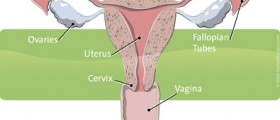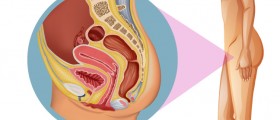
Facts about perimenopause
Women are well familiar with this term, which stands for the period in which the female body goes through changes that lead to the menopause. It does not start at the same age for every woman, but it ends after a woman goes through a whole year without a menstrual period. The signs that usually indicate this so-called transitional period may differ from woman to woman, but among them are irregular periods, and irregularity does not have to refer to their duration only, or to the period between two periods. If a woman notices that her periods are lighter or heavier, then it can also be a sign. Aside from these changes, the women in this period usually complain about hot flashes, problems with sleep, vaginal dryness, changes in the mood and sexual function, as well as loss of bone.
Can perimenopause be treated and how?
It is important to know that there is no need to visit the doctor as soon as the first symptoms are noticed. A woman can certainly make an appointment, but if symptoms do not interfere with her well-being and if they are tolerable, then the woman can simply go on with her life. Regarding the treatment of perimenopause, the truth is that this is a natural process, which means that it cannot be avoided in any way. However, some symptoms that tend to occur in this period and that can be very unpleasant and frustrating can be treated in several ways. The doctors will suggest the one that they find to be the most suitable for every woman individually, and the therapy can be based on oral contraceptives, progestin, or on endometrial ablation. If a woman is prescribed with certain oral contraceptives, chances that the periods will be regulated and the symptoms such as hot flashes and vaginal dryness will be reduced significantly are high because generally speaking, women tend to react positively to this type of therapy.
For those women who cannot or do not want to use oral contraceptives, there is another option and it is progestin. Therapy based on it can also be effective when it comes to regulating periods, as well as when a woman bleeds heavily. As for endometrial ablation, this procedure is not recommended to everyone, and women need to consult their doctor before deciding on this option. Women with heavy bleeding in the period of perimenopause undergo this procedure in which the endometrium is completely destroyed by laser, heat or electrical energy. In this way, menstruation is ended very effectively.

















Your thoughts on this
Loading...